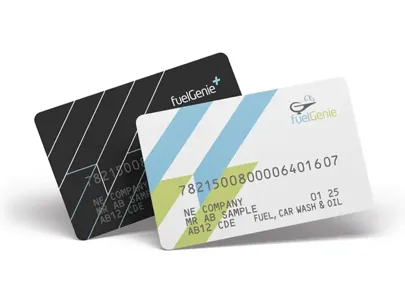As fuel prices continue to fluctuate and environmental concerns around fuel consumption rise, businesses across various industries are looking for more efficient ways to manage fuel usage.
This is where Artificial Intelligence (AI) plays a critical role in predictive fuel management – transforming how organisations monitor, predict and control fuel consumption. From logistics companies to small fleets, AI is rapidly becoming an essential tool for making more informed decisions about fuel usage, cost savings and sustainability.
What is Predictive fuel management?
Predictive fuel management refers to the use of advanced technologies like AI and machine learning (ML) to anticipate fuel needs and optimise usage. These systems collect vast amounts of data, analyse it and predict future fuel requirements based on patterns, trends and external variables like weather conditions or traffic. By providing real-time insights and accurate forecasts, businesses can make better decisions around refuelling schedules, route planning and fuel purchasing.
The integration of AI into fuel management systems is transforming practices. Instead of waiting for fuel shortages or inefficiencies to occur, companies can anticipate them and take corrective action before issues arise.
The role of AI
AI has several applications in fuel management. The most important of these include:
- Data-driven decision making: AI algorithms are excellent at processing large datasets, such as vehicle telemetry, historical fuel usage and environmental conditions. This allows for precise forecasting of fuel needs and optimisation of fuel purchases. For example, companies can analyse route data, vehicle performance and traffic patterns to predict the most fuel-efficient routes and minimise wastage.
- Real-time monitoring: AI-powered systems can continuously monitor fuel levels and provide instant alerts when refuelling is needed. This avoids overfilling and unnecessary stops, allowing fleets to operate more smoothly. Sensors embedded in vehicles collect real-time data, which AI uses to provide timely recommendations or alerts to the driver and fleet manager.
- Predictive maintenance: AI can also help predict when vehicles will require maintenance, based on their usage and fuel consumption patterns. Poorly maintained vehicles tend to use more fuel, so predictive maintenance can help save on fuel costs as well as repairs. AI-driven predictive models can recommend the ideal time to perform servicing to reduce inefficiencies and extend vehicle life.
- Environmental impact: AI can help organisations reduce their carbon footprint by optimising fuel usage. It does this by minimising wastage through efficient route planning, controlling vehicle speeds and reducing idling times. Additionally, AI can suggest alternative fuels, where appropriate, to improve overall sustainability efforts.

The role of fuel cards
While AI helps companies predict and manage fuel consumption more effectively, fuel cards are essential tools for tracking fuel purchases and expenses. Fuel cards provide business owners or fleet managers with detailed reports on fuel consumption. They can use this to monitor fuel usage and detect any anomalies, such as unauthorised purchases or unusually high fuel consumption.
Combining AI and fuel cards
When integrated with AI fuel management systems, fuel cards provide an even more powerful tool for controlling costs. The data collected by fuel cards – such as when, where and how much fuel is purchased – feeds directly into AI algorithms to improve predictions and fuel optimisation.
For example, a company can analyse the data from fuel card transactions and use AI to identify patterns across its fleet. If certain vehicles are consuming more fuel than expected, the system can alert you to investigate. Additionally, AI can use this data to predict future fuel needs, ensuring that drivers have enough fuel without over-purchasing or underestimating their fuel requirements.
fuelGenie
fuelGenie has an easy-to-use online or app account management system. This means it’s simple to track your drivers’ journeys and overall expenditure. It also generates reports so you can look at fuel spending as a whole. This information could then be integrated with AI to gain the benefits discussed, such as reduced fuel consumption and better sustainability.
If cost savings are top of your agenda, fuelGenie restricts drivers to low-cost supermarket locations which are on average over 3p per litre cheaper*. For just 50p a month per card, you could try fuelGenie+ which also includes most Shell garages, for greater coverage.
Conclusion
The role of AI in predictive fuel management is revolutionising industries by enabling more efficient fuel consumption, reducing operational costs and improving sustainability efforts. By integrating AI with existing tools like fuel cards, businesses can gain deeper insights into their usage and further optimise their operations. As the technology continues to advance, AI will be indispensable in shaping the future of fuel management, ultimately driving smarter, greener and more cost-effective solutions.


